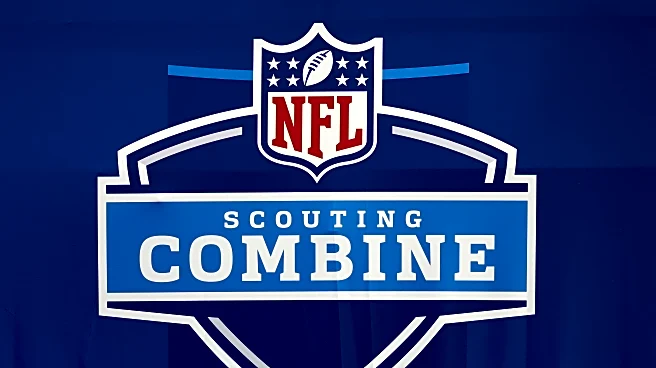What is the story about?
What's Happening?
As the Insurance Times Fantasy Football League progresses into its second gameweek, managers are confronted with early season injuries that necessitate strategic adjustments. Notably, premium attackers such as Salah, Haaland, Saka, and Palmer have faced challenges, with Saka suffering a hamstring injury and Palmer being injured during warm-up. These developments have led to Saka and Palmer being ruled out for the upcoming fixtures, prompting managers to consider activating their wildcard chips to redistribute their budget towards in-form players like Bournemouth's Semenyo or Liverpool's Cody Gakpo. The league's current leader, Stephane Flaquet, benefited from Palmer's injury, which doubled his vice captain Joao Pedro's points. However, the competition remains tight, with only nine points separating the top ten managers.
Why It's Important?
The early injuries in the Fantasy Football League highlight the unpredictable nature of sports management and the need for adaptability. Managers must make quick decisions to optimize their teams, which can significantly impact their standings in the league. The use of wildcard chips allows for strategic flexibility, enabling managers to adjust their teams based on current player performance and injuries. This dynamic environment reflects broader themes in sports management, where adaptability and strategic planning are crucial for success. The league's developments also underscore the competitive nature of fantasy sports, where small changes can lead to significant shifts in rankings.
What's Next?
Managers will need to closely monitor player performances and injury reports to make informed decisions for upcoming fixtures. The deadline for team changes is set for Saturday morning, adding pressure to make timely adjustments. As the season progresses, managers will continue to face challenges in balancing their budgets and selecting players who can deliver consistent points. The competitive landscape of the league suggests that standings will continue to fluctuate, with managers needing to remain vigilant and responsive to changes in player availability and performance.
Beyond the Headlines
The strategic decisions made by fantasy football managers can offer insights into broader sports management practices, including risk assessment and resource allocation. The use of wildcard chips early in the season may reflect a shift towards more aggressive management styles, prioritizing immediate gains over long-term planning. Additionally, the league's developments may influence how managers approach future seasons, potentially leading to changes in how teams are structured and managed.

















